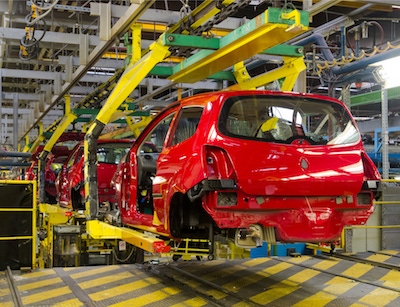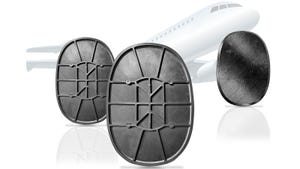As NAFTA renegotiations begin, uncertainties loom for manufacturers
Many manufacturers as well as trade groups representing the plastics industry in the United States, Canada and Mexico are in favor of modernizing NAFTA. There is less agreement over the establishment of new tariffs, however, and specifically a border adjustment tax.
July 25, 2017

NAFTA negotiations are set to begin on Aug. 16 in Washington, D.C., and while the date is certain, the outcome of the so-called “modernization” of the North American Free Trade Agreement (NAFTA) is not. Many manufacturers as well as industry trade groups��—the Plastics Industry Association (PLASTICS), the Canadian Plastics Industry Association (CPIA) and the Asociación Nacional de Industrias del Plástico A.C. (ANIPAC)—are in favor of a renegotiation.
These North American plastics industry groups outlined a unified platform of policy priorities during a recent leadership summit. “Our three organizations stand unified in wanting to support the growth and development of our industry across North America,” said PLASTICS President and CEO William R. Carteaux. “Plastics are the proven sustainable material of choice for an infinite array of applications throughout North America, and the world at large. Strengthening NAFTA will enable us to work together to develop new solutions to our world’s environmental challenges while also benefiting the millions of workers in the three NAFTA member nations.”
Areas of focus for trade negotiations include:
Continued support of the growth and development of the North American plastics industry
Harmonization of regulations of all types as they affect the industry
Review of the rules of origin
Simplification and modernization of trade and customs documentation
Ease of employee access throughout the continent
No new tariffs
That last one is important to many manufacturers in the plastics industry that have plants in the United States and Mexico. Brenan Riehl, President and CEO of GW Plastics Inc., commented for PlasticsToday on the subject of any new taxes: “GW has facilities both in the United States and Mexico. If a border adjustment tax were to occur, it could conceivably help our U.S. operations over time, but the transition period could be painful if it were to add costs to our OEM customers located in the U.S. These additional costs could be shifted to the supply chain until things get sorted out, much like the medical device tax under the ACA. We still think it makes sound business sense to pursue a strategy of balanced, global growth locating our facilities in support of our customers throughout the world. This provides our customers, our company and consumers with the benefits that have been proven to come from fair, sensible, global market trade policy.”
The three trade groups noted that the “absence of tariffs is what’s made NAFTA so successful for all three member nations’ plastics industries over the last 25 years,” adding that the “North American plastics industry is united in its opposition to any new tariffs that would have a profoundly negative impact on all three nations and their workers.”
The automotive industry has a huge stake in the outcome of any NAFTA renegotiations, as Mexico’s automotive manufacturing segment has grown enormously over the past two decades. Both OEMs and many of the Tier 1 suppliers have located numerous manufacturing plants in that country. The Center for Automotive Research (CAR), in commentary released in December 2016, noted that the “automotive industry is highly globally integrated,” as it has been since its early days of manufacturing in the 1920s and 1930s.
“Global competition in the automotive industry has resulted in an incredibly complex web of corporate relationships and supply chains, and products with parts sourced from multiple automotive regions,” said CAR. "Companies in Canada, Mexico and the United States have invested throughout the NAFTA region. Other nations invest in the NAFTA region, as well. Nearly 90% of the new Mexican light vehicle assembly plant investments announced since 2009 are for assembly plants of Japanese and European automakers.”
Together, these three NAFTA partners “produced more than 17.8 million light vehicles in 2016, which represents a 2% increase over total NAFTA light vehicle production in 2015,” said CAR. “NAFTA allows automakers to take advantage of best-cost production and lower chain risk, thus ensuring automotive production remains in North America. Without NAFTA, large segments of the U.S. automotive industry would have moved to other low-wage countries like Asia, Eastern Europe or South America. By producing cheaper automotive parts and components on the ‘near shore’ in Mexico rather than truly ‘off-shore,’ Mexican automotive plants helped sustain a competitive automotive industry across North America.”
About the Author(s)
You May Also Like




